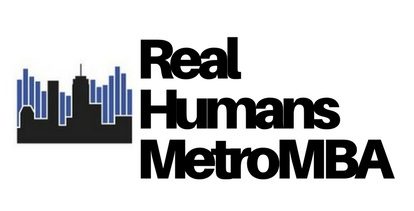Real Humans of the York University Schulich School of Business

A half century after the opening of the York University Faculty of Administrative Studies (FAS), the York Schulich School of Business in Toronto continues to shape the Canadian MBA landscape.
The business school, which was officially renamed in 1995 after a receiving sizable donation from esteemed Montreal philanthropist and entrepreneur Seymour Schulich, has earned a substantial track record of firsts in Canada, including: the country’s first MBA Arts & Media Administration specialization; MBA/LLB; Nonprofit Management and Leadership Program; International MBA; Financial Services Program; Financial Engineering specialization; and the first multi-national EMBA program with the Northwestern University Kellogg School of Management.

Of course, the history of a school may paint an overall setting, but it hardly tells the story of a current, individual student in the program. York Schulich MBAs stand out among many of Toronto’s stellar business schools, typically enrolling with a GMAT score of 660 and five years of professional work experience. As well, the York Schulich international community is well-represented, at 32 percent of the overall MBA class.
According to recent employment statistics provided by the school, Schulich MBAs typically earn about $91,500 CAD per year after earning their degree. In addition, about 89 percent of graduates earn employment just three months after graduating. Most grads earn roles in finance (23 percent), with marketing/sales (20 percent) and operations (18 percent) following closely.
To get a better feel for what life is really like for current York Schulich MBAs, we talked to a handful of students, including the manager of a long-standing luxury jewelry store, a theater major and performer, and a commercial lawyer looking for a brand new career challenge. Read on to see their stories and what the future may hold for life after an MBA.
Applications Down 4.5 Percent at HBS, But Applicant Quality Remains High

The release of the Harvard Business School (HBS) Class of 2020 profile statistics last week revealed that the Boston school—like many of its U.S. peers—saw a decrease in overall application volume, but median GMAT score and GPA remained unchanged from the prior year at 730 and 3.71 respectively. The admit rate, 11 percent, was also unchanged year over year. So though he was working from a smaller pool of 9,886 applicants (down from 10,351 last year), Managing Director of Admissions and Financial Aid Chad Losee did not sacrifice on quality.
Harvard Business School Application Slips for Class of 2020
HBS is one of many leading U.S. business schools to see application volume drop off in this most recent application cycle. A strong economy paired with concerns among international applicants about potential student and work visa challenges made for even more dramatic declines at schools like UNC Kenan-Flagler and Georgetown’s McDonough School, which reported double-digit drops of 18.3 and 16.2 percent respectively. Yield at HBS–which is to say the percentage of admitted students who chose to enroll–slipped from 91 to 90 percent. Still, HBS remains far and away the leader in this statistic.

Applications are down 4.5 percent at HBS, but declines across other U.S. MBA programs was much more apparent.
At HBS, the 4.5 percent application volume decline was spread between both international and domestic applicants. International students make up slightly more of the HBS class this year, 37 percent compared to 35 percent last year. They hail from 69 countries as compared to 70 for the Class of 2019.
Another interesting development is the increase in GRE takers among admitted students. A record-setting 15 percent of the incoming class got there on the strength of their GRE scores, up from 12 percent last year. It’s only in the past couple of years that schools have begun to disclose the percentages of students who submit GRE scores in lieu of GMAT scores, which used to be the gold standard. But at HBS and elsewhere, a growing number of applicants seem to be taking schools at their word that they are indeed test agnostic.
There were not a lot of major shifts elsewhere in the statistics for the newest HBS class. The percentage of women is down by one point, slipping from 42 to 41 percent. U.S. ethnic minorities remained constant year over year at 26 percent of the class. The average age also remains unchanged at 27.
Applicants from Private Equity, Tech, Increase
In terms of prior work experience, there were again few shifts from the prior year. Slightly more students came in from private equity/venture capital (16 percent, compared to 15 percent last year), tech (also 16 percent, up from 15), and government/non-profit (7 to 8 percent). These upticks correlate with small declines in students from industrial/heavy manufacturing and other services. Military veterans make up 5 percent of the Class of 2020, on par with the Class of 2019.
And in terms of what students in this year’s entering class studied as undergraduates, again HBS showed little fluctuation. Economics/business majors make up the largest portion—46 percent, up from 45 percent last year. STEM undergrads also increased one percentage point, from 36 to 37 percent. Humanities/social science undergraduates made up just 17 percent of the class, down from 19 percent last year.
To view HBS’s complete Class of 2020 profile, click here.
This article has been edited and republished with permissions from our sister site, Clear Admit.
What are the Most Common Business School Application Mistakes?

Nobody just strolls into business school and starts taking classes. Prospective MBAs must undergo a rigorous application and admission process before beginning coursework and earning credits toward an graduate degree. Continue reading…
Been Waitlisted? Here’s What to Do (And Not Do)

There’s an art to the waitlist, and it can be mastered.
Remember, you’ve probably been waitlisted for a reason. For one, you’re qualified. Otherwise, you would have received a denial. Unfortunately for you, other candidates had a bit more of an edge. Maybe their GMAT scores or GPA was higher. However, your dream school might not be theirs, so there’s always that chance that enough applicants will deny the offer, and the school will, in turn, offer a place to you.
The waitlist can also serve as a sort of test for applicants the school isn’t 100 percent sure about. Here are a few simple tips to help you put your best foot forward while on the waitlist and show your dream school that it needs you just as much as you need it.
Follow Instructions
Schools are pretty clear about how they want you to respond to their notice. If they ask that you not send a letter, then don’t—no matter how much your heart aches to. If they ask for another letter of recommendation, send one as soon as possible. It’d be even more effective if a former colleague or mentor who attends/attended the school or works at it write the letter (assuming they know you personally). Don’t hesitate to do whatever the school asks from you, especially if it is your first choice. That’s the kind of attitude that may lead you where you want to go. But don’t do too much if the school doesn’t ask for it.
Last year, Clear Admit wrote about this dilemma, saying, “ignoring the adcom’s instructions is ultimately going to reflect badly on you. Though policies discouraging communication from waitlisted candidates may seem frustrating or unfair, it’s important to respect and abide by the preferences of each school.”
Clarify Your Intentions
If you plan to wait it out, it may be important to let the school know. If the school is your first choice, let your contact there know as well. Whatever it is that you plan to do next, inform the school. You must do all this, of course, without appearing too cloying and without disregarding whatever instructions the school provided in the waitlist notice. If schools know, however, that you’ll definitely accept their offer, there’s a better chance they’ll offer it to you than that waitlist applicant from whom they never heard back. They also want to know how interested you are, so keep in touch.
“There are candidates who are offered a place on the waitlist and then we never hear from them again. And there’s candidates who don’t overwhelm us with contact but at least stay in touch and help us remember them,” said James Holmen, Director of Admissions and Financial aid at Indiana University—Bloomington’s Kelley School of Business, to U.S. News.
Retake GMAT
Even if a school doesn’t ask this from you, it still might be a good idea to retake the GMAT. Some of the most common gaps in applications include a low GMAT score and GPA. If a school doesn’t accept you the first time around, chances are it had something to do with one of those factors. And your GMAT score, at least, you can change. Unless you scored an 800. Then, you’re a genius, and something is really wrong with the school to which you applied.
Really, though, any time something changes in your application, feel free to inform the school, which includes updated GMAT scores. But if you receive a promotion or a job change, that’s something worth telling them too.
Consider Plan B
This really is a personal decision. Are you in a rush to get that MBA? If so, then it might be a better idea to hop on it as soon as you can and forget that waitlist. You’ve likely been accepted into a number of other MBA programs. But have you been waitlisted at your dream school? Is it one of the best in the world? Well, then, it might be worth waiting it out because you have a chance. If they don’t go with you this time, you can increase your chances next round by doing some of the tips laid out above.
“If you’re wait-listed, it means you’re a great candidate,” U.S. News reported. “You can apply next year. So, honestly, a year plus or minus doesn’t change things.”
Good luck, and chill out. Everything will turn out for the best in the end.
UC Irvine Becomes Latest LA Business School to Offer GMAT/GRE Waiver

Applying for an MBA program is a long process: There’s plenty of applications, essays, and interviews involved in getting you into the program atop your list. To add insult to injury, many programs require a GMAT or GRE score, only adding to potential workload and stress. Continue reading…
How to Deal with a Bad GMAT Score

You’ve been studying for months, possibly losing sleep as you go over the practice questions in your head and, as a result, getting some oh-so-enjoyable stress dreams. If any of this sounds familiar, you probably have had to—or currently are—preparing to take that Graduate Management Admission Test (GMAT).
